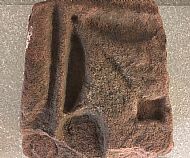Letter from beyond the grave
I long to hold you in my arms
Loving you in innocence.
I can’t share with you my hopes
Nor shield you from my memories
Our children I’ll not see again.
Maybe they’ll be proud
To have had a soldier dad
Little knowing the cruel reality.
Growing Old
Gone are my days of running free
Up the beckoning hills to see
Beguiling vistas from the tops.
For me no more dancing the highland fling
With effortless grace, birling to the skirling
Pipes. Poignant memories of youth.
But I survived.
Am still alive
Mourning those who died
Back to the beginning
Skull soaks in earth
Body scattered
Bones disunited
Boom. Shower of mud
Deafens as it destroys
Consciousness and life
Almost silently the bomb
Soars gracefully to its random
Landing pad, seeking flesh.
Victim
Cold I may be
That is my nature.
The raw materials I am made of
Have been made cruel by man.
I cannot pull the trigger
Nor kill with bayonet.
I am a victim too.
The end comes from the beginning
My skull is cradled
In a stranger’s foot
Pillowed in mud
Suffocating
Limbs I know not where
Blown asunder
Anonymous
Boom
The impact
Made an end
To my being
The bomb sailed almost silently
To its resting place
The gunner lit the fuse.
The end
Skull sulking into mud
Sinking anonymously
Into oblivion
Limbs detached
Twitch no more
But gleam white
In the moonlight
When washed clean
Rats gorge
A soldier’s lament
I love you
I can’t be with you
King and country called
Not revealing the
Reality
Of
War
Would it have changed my mind?
The shame of not engaging worth enduring?
At least I’d have been with you still.
The stigma would have faded.
Medals are no substitute for a dead dad
I’m not coming home
My loves
You are in my thoughts
Always.
It is not glorious
Here
May you be spared
The reality
Inhumanity
Detached brutality
The guns fire randomly
No looking the enemy in the eye
So much easier that way
But the nightmares which follow
I hope you’ll never know
The villain
Steel
Cold
Harsh
Moulded by craftsmen
In their thousands
Perfect precision instruments
Heralding destruction
Not of our choosing
Not of our design.
We can’t pull the trigger.
Ladies who knit
The sun streams through the generous bay window of the morning room, bringing out the rich jewel colours of the Persian carpets. A lavish arrangement of red roses in an elegant cut glass vase sits on a table near the grand piano, adding to the air of understated luxury.
‘I wonder if they were sent up from London’ Jeannie whispers as she starts the tricky bit of turning the heel of the sock she is knitting.
The delicate French clock on the marble mantlepiece signals the half hour but the chimes are masked by the clicking of knitting needles and quiet chatter.
‘What it is to be rich’ sighed Hetty.
‘But then the Fletchers are aye ready to help. Mind how Mr Fletcher volunteered his traction engine and transport wagons to move the munitions and equipment from Fortrose Station to Cromarty?’
‘And even before the war he was helping the weans, sending rabbits from the estate to the school for their soup.’
‘Other farmers helped too, donating tatties and neeps.’ Jeannie leant nearer to Hetty. ‘Have you heard the crack about Margaret Rose that was the postie?’
‘I mind Hannah Patience took over from her a whilie back. That Margaret doesn’t stick at anything for long. What has she been up to the now Jeannie?’
‘Land girl. That’s what.’
‘Away. Whit does she ken about farming? Her family has aye been into the herring fishing. Mind she took against being a herring girl after the one season. I can’t blame her mind. Following the fleet frae Wick to I dinna ken where, maybe Newcastle, gutting herring and salting them down in they muckle great barrels. Hands aye getting nicked by the gutting knives and the salt is that nippy. Mind you, the fish oils kept the girls’ hands very soft’
‘The way I heard it, Hetty, Margaret went to thon classes in Fortrose Academy, August they were, run by Miss Chew, her frae the North of Scotland Agricultural College.’
‘Whit for?’
‘Seemingly she was on about dairying, butter making and the like. Margaret had to do exams an’ all.’
‘Och I, I mind someone talking about the sore need for milkmaids. So she’s got a job then?’
‘At Ness Farm, near Fortrose. That Miss MacLean at the Employment Exchange in Inverness fixed her up there.’
‘Good morning ladies. How are you all today?’ Their chat was interrupted by Mrs Fletcher, owner of Rosehaugh Hall, a lady well-known for her war work. She beamed at the dozen or so ladies seated in small groups in her morning room. ‘Soon time for a tea break I think. Jason will be bringing in the trolley any minute now.’
‘I wonder if her cook has got any better at the shortbread. She should take lessons from you Jeannie’ Hetty muttered.
‘Away with you. I just make it the way my mother did. Equal quantities of butter and plain flour, kneaded with some sugar and cornflour till it feels right. A bairn could do it.’
Mrs Fletcher interrupted again. ‘I see we have a newcomer to our circle.’
‘This is my niece, Phyllis Fleming’ Jeannie volunteered. ‘Just back from working in a munitions factory in Sheffield she is.’
‘Welcome Phyllis. What brought you back from such valuable war work?’
‘My mother took poorly. My sister and me, we tossed for it to see who would come back. I was fine pleased it was me. The factory is so noisy and I was missing Avoch.’
‘And how is your mother?’
‘A bittie better, thank you Mrs Fletcher. I can get out of the house for a few hours now and then. I still want to do my bit for our boys so came along with Auntie Jeannie today.’
‘Very commendable. I hope you will become part of our Avoch War Work Party. The ladies meet here at Rosehaugh Hall every Tuesday morning. You probably know Mrs Spence Ross, our President.’
‘Yes. And my Auntie Jeannie has got me needles and wool for the socks. What a pity we can’t use red wool, to cheer up the boys.’
‘Yes indeed, but seemingly if their feet get rubbed and sore, the red dye could cause an infection. It is poisonous we are told.’
‘We knitted over 600 pairs of socks between us in 1915 – 1916’ interjected Miss Jack, the AWWP secretary. ‘Did you know, 100 pairs are needed for every company so’
‘So every little helps’ added Miss Kelly. ‘With my Treasurer’s hat on, I am pressing the Congregational Church to do another fundraiser. We need to buy more wool, and then there are the shirts to think of. Miss Fraser, the dressmaker in the High Street, says she is nearly out of material.’
‘No wonder’ smiled Mrs Fletcher. ‘She is tireless. She made over 200 shirts last year you know. Ah. Jason. Tea. Most welcome. And shortbread. Tuck in ladies.’
Note: Although I have taken some liberties with the time line and the dialogue is fictional, all the facts and names are real.
Elanore Simpson





